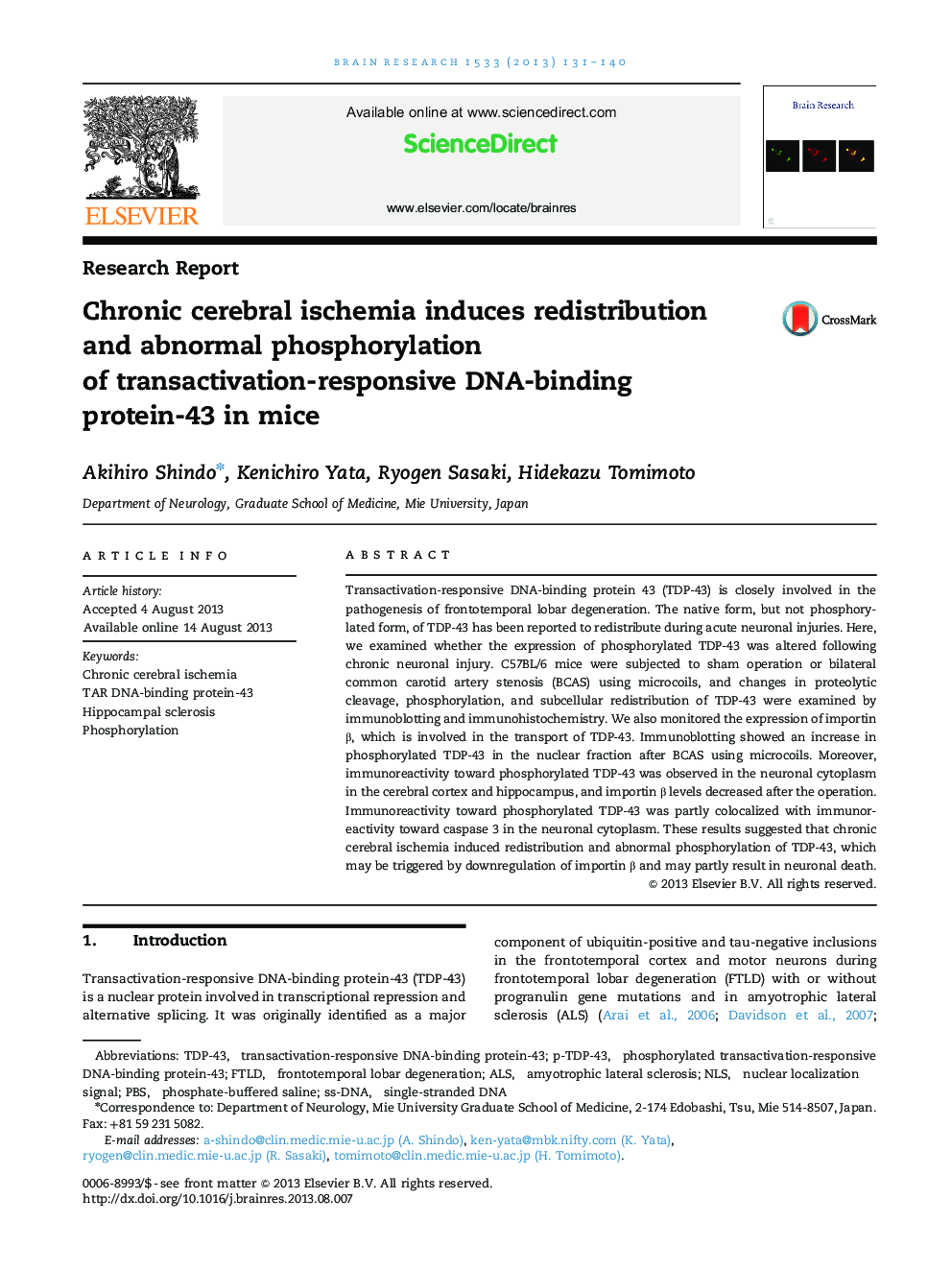| Article ID | Journal | Published Year | Pages | File Type |
|---|---|---|---|---|
| 4324539 | Brain Research | 2013 | 10 Pages |
•We examine changes in TDP-43 expression in chronic cerebral hypoperfusion.•Chronic cerebral ischemia induced TDP-43 upregulation in the cytoplasm.•Chronic cerebral ischemia induced nuclear and cytoplasmic TDP-43 phosphorylation.•Redistribution and abnormal phosphorylation of TDP-43 may cause neuronal apoptosis.
Transactivation-responsive DNA-binding protein 43 (TDP-43) is closely involved in the pathogenesis of frontotemporal lobar degeneration. The native form, but not phosphorylated form, of TDP-43 has been reported to redistribute during acute neuronal injuries. Here, we examined whether the expression of phosphorylated TDP-43 was altered following chronic neuronal injury. C57BL/6 mice were subjected to sham operation or bilateral common carotid artery stenosis (BCAS) using microcoils, and changes in proteolytic cleavage, phosphorylation, and subcellular redistribution of TDP-43 were examined by immunoblotting and immunohistochemistry. We also monitored the expression of importin β, which is involved in the transport of TDP-43. Immunoblotting showed an increase in phosphorylated TDP-43 in the nuclear fraction after BCAS using microcoils. Moreover, immunoreactivity toward phosphorylated TDP-43 was observed in the neuronal cytoplasm in the cerebral cortex and hippocampus, and importin β levels decreased after the operation. Immunoreactivity toward phosphorylated TDP-43 was partly colocalized with immunoreactivity toward caspase 3 in the neuronal cytoplasm. These results suggested that chronic cerebral ischemia induced redistribution and abnormal phosphorylation of TDP-43, which may be triggered by downregulation of importin β and may partly result in neuronal death.
